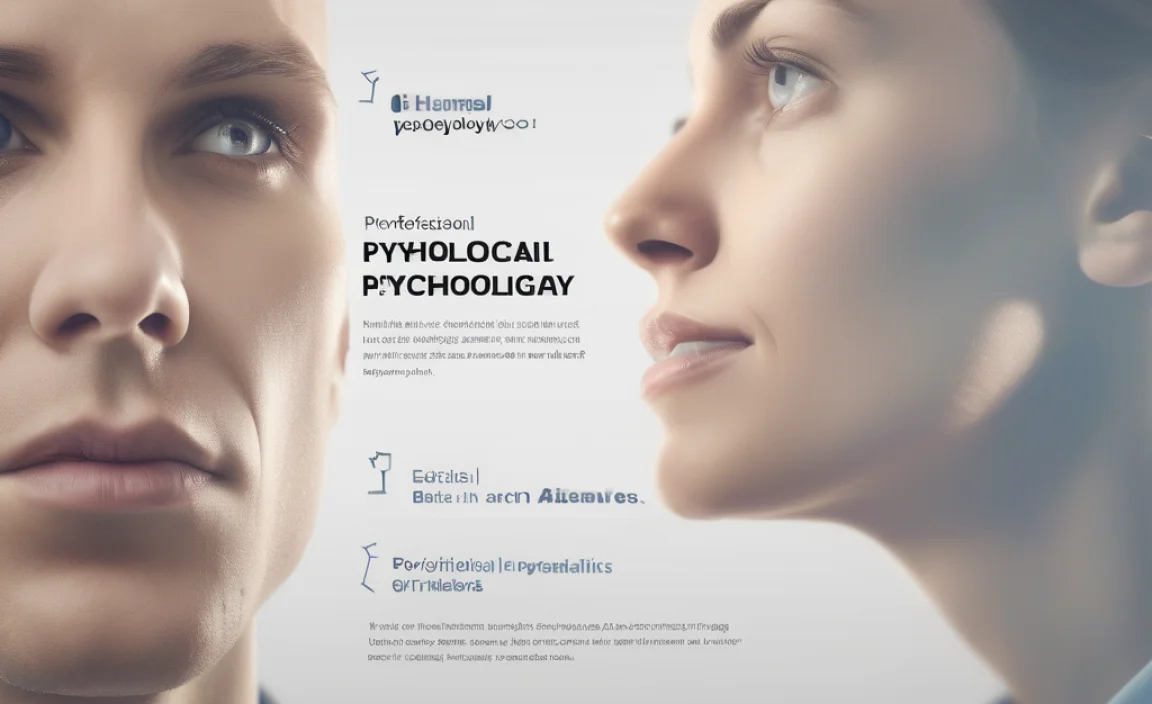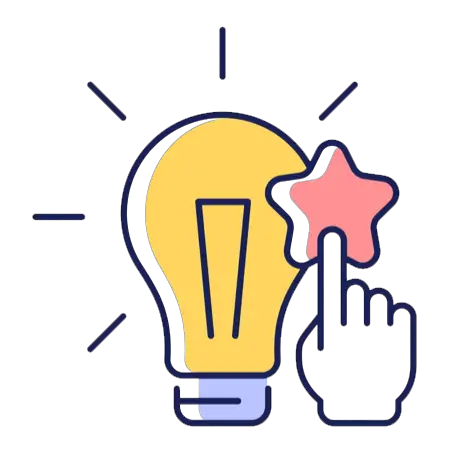Have you ever wondered why people behave the way they do? Sometimes, our actions surprise even ourselves! Psychology helps us understand these behaviors. It’s like a secret map inside our heads. Psychology facts about human behavior show us why we act certain ways. Let’s explore some amazing facts about why we do what we do!
Key Takeaways
- Emotions can sometimes control our actions.
- Our brain loves patterns and routines.
- People often mirror others’ behaviors.
- Understanding empathy changes relationships.
- Learn psychology facts about human behavior to predict actions.
Emotions and Their Influence

Have you ever laughed just because everyone else was laughing? Emotions are powerful! They can make us do things we never planned. When someone smiles at you, don’t you feel like smiling back? This is because emotions can be contagious. They spread from one person to another, like a happy virus. Understanding how emotions affect us can help us make better choices. It can even help us understand how others might feel in different situations.
- Emotions can change quickly.
- Happy people spread happiness.
- Fear can make you run fast.
- Excitement can boost energy.
- Sadness can make you quiet.
- Anger can cloud good decisions.
Emotions are not just about feelings. They play a huge role in how we react to things. For example, when you’re scared, your heart beats faster. This is your body’s way of preparing to run away or fight. But sometimes, emotions can trick us. A misunderstanding might make you angry, even if it wasn’t true. Learning to understand our emotions can help us stay calm and make better choices. By knowing more about them, we can also help our friends when they feel down or scared.
Fun Fact or Stats : Smiling can trick your brain into feeling happy!
Why Do We Mirror Others?
Have you ever noticed that when someone yawns, others start to yawn too? This is called mirroring. Our brains are like copycats! Mirroring helps us connect with others. It’s a way for us to understand what someone else is feeling. When we see someone else showing joy or sadness, we can feel it too. This connection is important for making friends and understanding family. So next time you find yourself copying someone, remember, it’s your brain’s way of connecting!
How Emotions Guide Decisions
Imagine you want to buy a toy. If you’re happy, you might choose a colorful one. If you’re sad, you might not buy anything at all. Our emotions guide our decisions every day. They can make simple choices hard. For example, fear might stop you from trying something new. Knowing how emotions work can help us make better decisions. So, next time you feel unsure, take a deep breath and think about your feelings.
Can We Control Our Emotions?
Have you ever tried to stop being angry or sad? It’s hard, right? But with practice, we can learn to control them better. Just like riding a bike, the more you practice, the better you get. When you feel an emotion, take a moment to think. Ask yourself why you feel that way. Understanding the reason can help you manage your feelings. So, next time you’re upset, try to pause and think it through.
Patterns and Routines

Do you brush your teeth every morning without thinking? Our brains love routines! They help us save energy and time. When we do things the same way, our brain knows what to expect. This makes it easier for us to focus on other things. But sometimes, routines can make us feel stuck. Trying new things or changing a routine can be exciting! It can help our brains grow and learn new things.
- Routines save brain energy.
- Patterns make tasks easy.
- Breaking routines can be fun.
- New experiences grow brain power.
- Habits shape daily life.
Patterns are everywhere. They can be the steps you take to school or the way you tie your shoes. These patterns help us feel safe because we know what comes next. But sometimes, breaking a routine can be exciting. Trying a new route to school might show you something cool you’ve never seen before. It’s like going on a small adventure. So, while routines are helpful, remember to try new things too!
Fun Fact or Stats : It takes 21 days to form a new habit!
Why Do We Love Routines?
Can you imagine if every day was completely different? While it sounds fun, it might be tiring! Routines help our brains relax. They make our days smooth and predictable. When you know what to expect, you feel more comfortable. This is why many people love having a daily routine. It makes them feel secure. But don’t forget to add a little fun and surprise to keep things exciting!
Surprising Benefits of Breaking Patterns
Have you ever tried something new and loved it? Breaking out of routines can show us exciting things. Trying a new hobby or visiting a new place can bring joy. It helps your brain grow stronger by learning new things. Sometimes, breaking a pattern can bring unexpected happiness. So, try something new today. Who knows what amazing things you might discover?
Do Routines Make Us Smarter?
Routines don’t just save us time. They help make us smarter too! When you practice something repeatedly, your brain becomes better at it. It’s like building muscle but in your brain. This means routines can teach us skills and make us faster at doing tasks. So, remember, while trying new things is important, routines help our brains become expert helpers in what we do every day.
Empathy and Understanding Others

Have you ever felt sad when your friend was sad? That’s empathy! It’s the ability to understand and share someone else’s feelings. Empathy helps us connect with others. It makes friendships stronger. When we understand how someone else feels, we can help them better. This makes the world a kinder place. Learning about empathy is one of the most interesting psychology facts about human behavior.
- Empathy connects people.
- Understanding feelings builds friendships.
- Sharing emotions strengthens bonds.
- Kindness spreads through empathy.
- Empathy makes the world better.
Empathy is like having a superpower. It lets you feel what others feel. This helps you be a better friend and family member. If someone falls and you feel bad for them, that’s empathy! You can help by offering a kind word or a hug. Being empathetic means you care about others. It’s a special skill that can make you a hero in someone’s life. Keep practicing empathy and see how it transforms your relationships.
Fun Fact or Stats : Did you know that animals show empathy too?
Why Empathy Matters
Imagine your best friend is upset. Wouldn’t you want to help? Empathy allows us to do just that. It helps us understand why they feel the way they do. Empathy shows us how we can support them. It’s like a secret key to stronger friendships. So, next time someone is sad or happy, show empathy. You might just make their day a little brighter!
How to Practice Empathy
Practicing empathy is easy. Start by listening carefully. When someone talks, try to feel what they feel. Ask questions to understand better. Then, respond with kindness. Offer help if they need it. By practicing empathy, you learn to see the world through another person’s eyes. This makes you a better friend and family member. Try it today and see how it makes you feel!
Empathy in Action
Imagine seeing someone alone at recess. How would you feel in their shoes? Empathy lets us take action. You could invite them to play. By doing this, you make them feel included. This is empathy in action. It turns feelings into helpful actions. With empathy, we can make the world a caring place. So, keep your empathy hat on and spread kindness!
| Emotion | Effect | Example | Action |
|---|---|---|---|
| Happiness | Boosts energy | Laughing at a joke | Share jokes |
| Fear | Increases alertness | Playing tag | Stay aware |
| Sadness | Lowers energy | Missing a friend | Seek comfort |
| Excitement | Boosts motivation | Winning a game | Celebrate achievements |
The Science of Learning and Behavior

Have you ever wondered how we learn new things? Our brain is like a sponge. It loves soaking up new information. Learning changes our brain. These changes help us grow smarter and faster. Psychology studies these changes. It tells us how people learn and behave. Understanding these psychology facts about human behavior can help us become better learners.
- Learning changes brain structure.
- New skills strengthen brain power.
- Practice makes the brain faster.
- Learning is fun and rewarding.
- Curiosity boosts learning speed.
Learning is like a journey. Every new thing we learn adds a little more to our knowledge. It’s like collecting pieces in a game. Each piece makes us stronger and wiser. Whether it’s a new language or a new game, learning keeps our brains healthy. It’s important to stay curious and keep learning new things. This helps us face challenges better and makes life more exciting.
Fun Fact or Stats : The brain can make new connections every day!
How Do We Learn Best?
What’s the best way to learn something new? Everyone learns differently. Some people learn by seeing, others by doing. Finding your style is important. Try different methods and see what works. Maybe it’s reading, watching videos, or doing hands-on activities. Discover your style and learning will be easier. Once you know it, you can learn anything you want!
Why Is Curiosity Important?
Did you know curiosity is like a superpower? It drives us to explore and discover. When we’re curious, learning becomes fun. Imagine being an explorer on a treasure hunt. That’s what curiosity does. It leads us to new adventures. Stay curious and you’ll always have exciting things to learn. So, ask questions and seek answers. Curiosity keeps learning alive!
Can Learning Change Our Brains?
Have you ever felt smarter after learning something new? Learning can change our brains! It’s like building new roads in our mind. These changes make us better at solving problems. They also help us remember things faster. That’s why learning is so important. It doesn’t just teach us new things, it makes us smarter overall. Keep learning and grow your brain power!
Conclusion
Understanding psychology facts about human behavior helps us know why people act certain ways. We learn how emotions, empathy, and routines shape us. These facts teach us about ourselves and others. With this knowledge, we can improve our lives and relationships. Keep exploring these facts, and make the world a better place!
FAQs
Question: What is empathy?
Answer: Empathy is understanding and sharing the feelings of others. It helps us connect. When we feel empathy, we know how others feel. We can support and help them. Empathy makes friendships and families stronger. It’s one of the many interesting psychology facts about human behavior.
Question: How do emotions affect behavior?
Answer: Emotions greatly influence our actions. They can make us happy or sad. They can also push us to act in certain ways. For example, happiness can make us more friendly. Understanding these effects helps us manage our actions better. Learning psychology facts about human behavior can reveal more about these effects.
Question: Why do we love routines?
Answer: Routines make life easier. They save us time and energy. Our brain loves knowing what to expect. Routines help us feel safe and secure. However, it’s also fun to break routines sometimes and try something new. Understanding this is part of learning psychology facts about human behavior.
Question: What makes learning fun?
Answer: Curiosity makes learning exciting. When we’re curious, learning feels like an adventure. Discovering new things keeps our minds active. Trying different activities or subjects can boost our interest. Everyone learns differently, so find what makes it fun for you. Stay curious and enjoy the journey!
Question: Can learning change our brains?
Answer: Yes, learning can change our brains! It creates new connections and strengthens old ones. This helps us think faster and remember better. Every new skill adds to our brain’s strength. Regular learning ensures our brain stays healthy and sharp.
Question: How does empathy help us?
Answer: Empathy builds connections. It helps us understand others’ feelings. By showing empathy, we build trust and care. It strengthens friendships and helps us support each other. Being empathetic makes the world a kinder place. It’s a key part of understanding psychology facts about human behavior.











